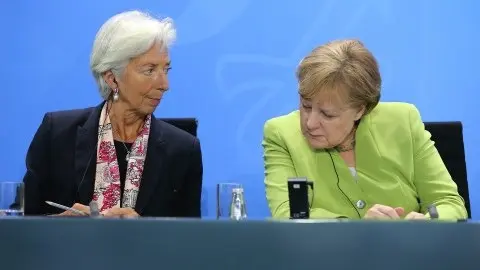Encouraging news from the trade front
Markets rallied earlier this week on signals that a de-escalation of the trade war is in the making. But risks are still tilted to the downside
Optimism prevails
Although it has not been the prime focus of attention, US Commerce Secretary Wilbur Ross’s optimism last weekend that tariff hikes on European car imports can be avoided, signals that serious steps are being taken towards a de-escalation of the trade quarrel between the US and EU. According to Ross, there is hope that plans by European car makers to invest in the US will bear enough fruit to make higher import tariffs unnecessary.
Most of the recent market optimism, however, has been fuelled by the increasing chance of a mini trade deal between the US and China. There are still hurdles to be overcome but it is encouraging that, contrary to last spring, Chinese negotiators are sending more positive signals, as well their US counterparts.
The fact that President Trump has decided to go along with a partial deal, despite his earlier statements, is a positive sign in itself. Until recently, he said that he was only interested in an all-encompassing deal, which would be much more difficult to achieve.
This change of mind shows that Trump, as we forecasted earlier, has entered the concession phase. He needs a deal to show the American people that he can deliver on his promise to improve the terms of trade for the US ahead of the 2020 presidential election.
Last hurdles in negotiations are toughest
Having said this, it should be noted that there is still work to do. It is not yet clear whether the alleged concessions from China regarding its exchange rate policy, its policy to protect foreign intellectual property and its increase in agricultural imports from the US, will be enough to satisfy the US administration and the Republicans and Democrats in Congress. Quite a few members of Congress from both parties are afraid that Trump is giving in too much simply to be able to claim a win. Trump will be wary of cutting a deal that can be easily characterised by the Democrats as pure window-dressing with no real substance.
Even if the Chinese concessions have enough clout to potentially convince Congress, the question remains, what price is the US willing to pay? China is demanding that the US not only cancel the tariff hike planned for mid-December, but also undo a significant share of the US tariff hikes that have been implemented since the start of the trade war. Chinese officials said today that there is an agreement with the US to roll back some of the mutual tariffs hikes. How many will be rolled back depends on the final content of the mini deal, they say.
Tariffs still a potential deal breaker
While this is a positive development, the scaling back of tariff hikes could still turn out to be a deal breaker. If the US considers the mini deal as no more than a limited first step towards a phase two deal which would resolve the more difficult issues, it will want to keep the pressure on. Without sufficient tariffs in place, China's willingness to cooperate in follow-up negotiations on tough issues like reducing Chinese state subsidies, diminishing 'forced' technology transfers and scaling down its ambitions to conquer global tech markets, could be in short supply, according to the hardliners on Capitol Hill and in Congress.
Nevertheless, we do expect a phase one deal to be struck soon, which means that things are moving in the right direction. Although risks are tilted to the downside, this increases the chances that our base case, a broader agreement, will be struck around the end of 1Q 2020.
This publication has been prepared by ING solely for information purposes irrespective of a particular user's means, financial situation or investment objectives. The information does not constitute investment recommendation, and nor is it investment, legal or tax advice or an offer or solicitation to purchase or sell any financial instrument. Read more
Download
Download article
8 November 2019
November Economic Update: Trading the positives This bundle contains 9 Articles